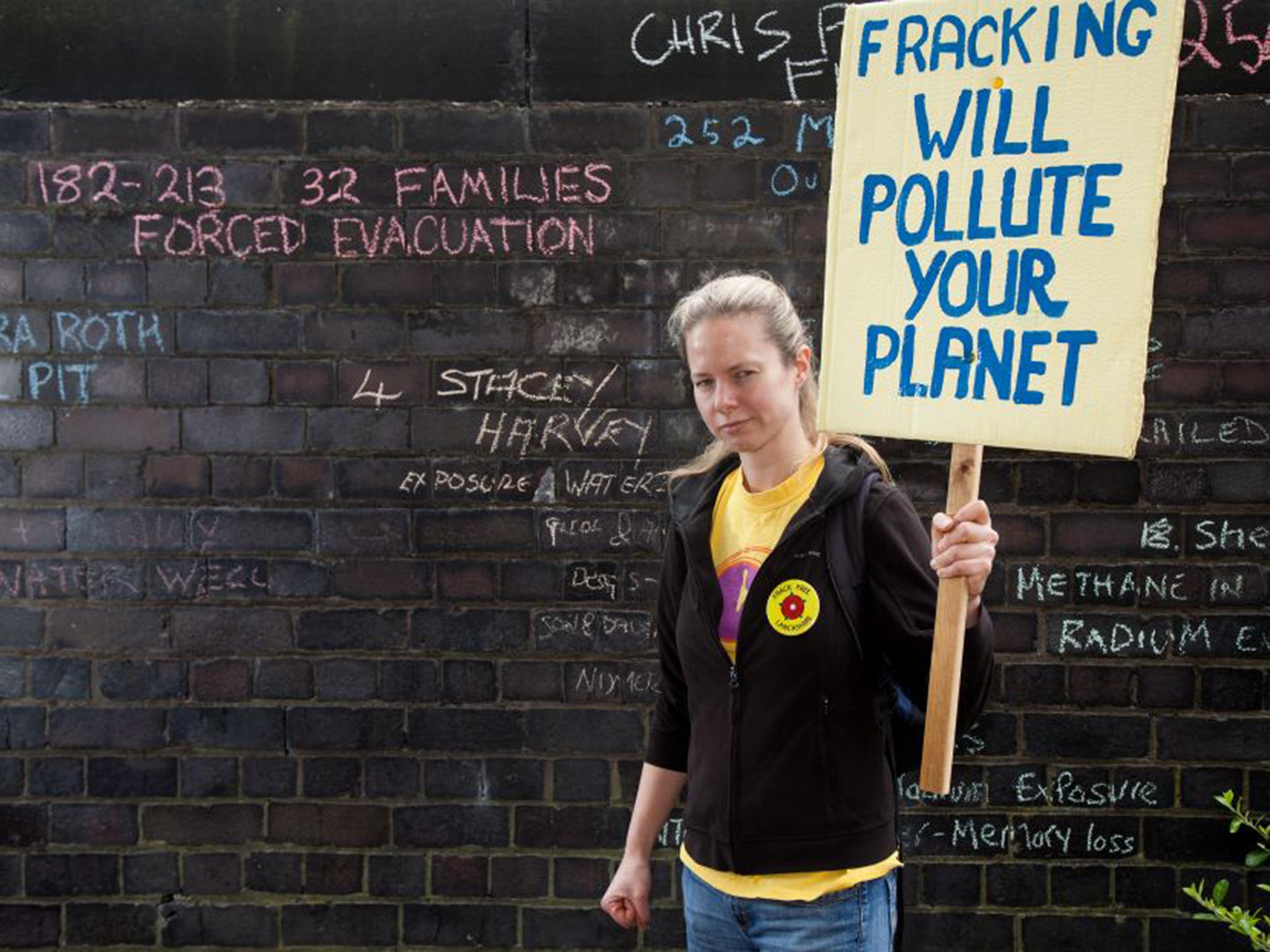If Cuadrilla get their way on fracking, it will come at the cost of Lancashire's democracy
The local community has made its feelings clear


Your support helps us to tell the story
From reproductive rights to climate change to Big Tech, The Independent is on the ground when the story is developing. Whether it's investigating the financials of Elon Musk's pro-Trump PAC or producing our latest documentary, 'The A Word', which shines a light on the American women fighting for reproductive rights, we know how important it is to parse out the facts from the messaging.
At such a critical moment in US history, we need reporters on the ground. Your donation allows us to keep sending journalists to speak to both sides of the story.
The Independent is trusted by Americans across the entire political spectrum. And unlike many other quality news outlets, we choose not to lock Americans out of our reporting and analysis with paywalls. We believe quality journalism should be available to everyone, paid for by those who can afford it.
Your support makes all the difference."No Fracking Here, No Fracking Anywhere!"
This was just one of the rousing chants repeated throughout Lancashire’s campaign to stop fracking in its tracks. The news yesterday that the Planning Inspectorate may take sixteen months to decide whether to uphold Cuadrilla’s appeal hammers yet another nail in the coffin of the fracking industry, and further frustrates Osborne in his attempt to go "all out" for shale.
When Lancashire County Council voted to turn down Cuadrilla’s application on the grounds that it would have an unacceptable visual impact and create too much noise, there was pure celebration. But there was also a very real understanding that, as Bob Dennett, a campaigner with Frack Free Lancashire said, "we obviously haven’t won the war. We still have quite a lot more to do."
Since drilling likely caused earthquakes in 2011 Lancashire has become a symbol of the increasing tenacity of local people who are fighting to keep fracking out of their communities. Over the years they have collected thousands of objection letters, held hundreds of public meetings and even occupied a field to make their point.
When Lancashire councillors made their decision they were under intense pressure from the industry and, it seems, from central government. Yet they came to a decision that clearly reflected the concerns of the majority of their constituents. Now that Cuadrilla has challenged it, the decision made by Lancashire’s elected representatives could be overturned by anonymous government planners, and, what’s worse, the Department for Community and Local Government could intervene at any point to alter the process.
But whether Greg Clark, Minister for Communities and the architect of Tory localism, on whose desk the decision will land, could be willing to subvert the democratic decision-making process which he has so passionately supported in the past, remains to be seen. As Bob said, "we aren't really surprised that Cuadrilla are going to appeal as they don't seem to believe that democracy applies to them. We will, of course, fight their appeal vigorously."
The truth is that fracking enjoys very little support in local communities across the UK. Fracking risks industrialising our countryside, could put water supplies at risk and will pollute the air we breathe. Even the Chairman of Cuadrilla admits that fracking won’t lower our bills. And though our Government claims that gas is "clean", we know that 80 per cent of existing fossil fuels must stay in the ground to stand a chance of avoiding runaway climate change.
Given the level of public interest in the outcome of this appeal, any decision-making process must be as transparent, open and fair as possible. The Government needs to recognise the fracking fight for what it is; local people defending their right to a clean, safe and sustainable future for themselves, and for the whole country.
Hannah Martin is a Greenpeace Energy Campaigner
Join our commenting forum
Join thought-provoking conversations, follow other Independent readers and see their replies
Comments